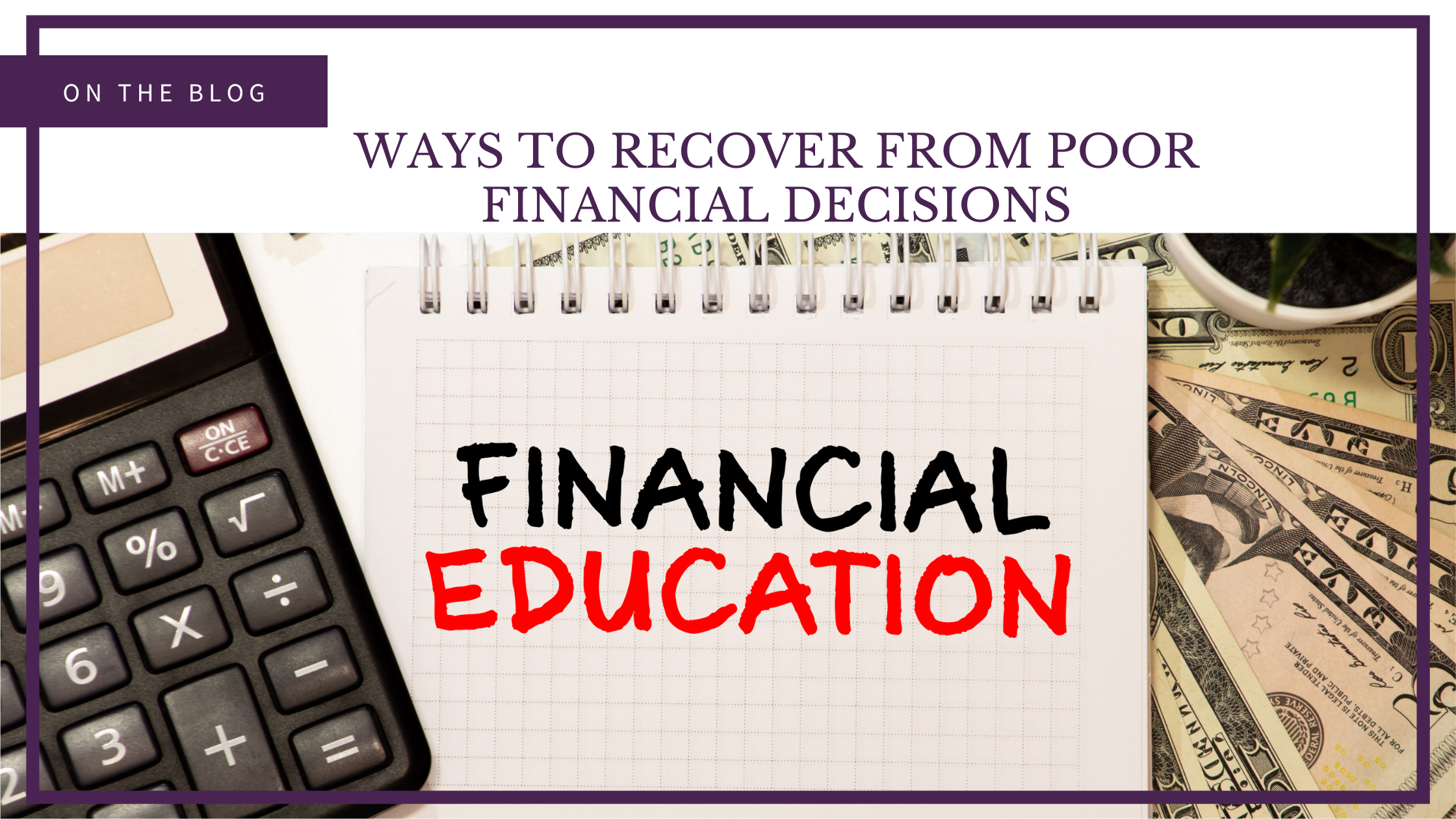Being stuck between a rock and a hard place isn’t just something that happens while scaling a mountain. It can occur financially in your life. Making money decisions means doing your best to predict what will happen in the future while considering what is possible in the present. What looks good right now may be the wrong call and hurt you in the long run.
So regardless of how you got to the point of trying to recover from a financial decision that left you in the lurch, the way forward is still similar. Let’s start with grace and lay out the next few steps you can take in order to climb toward your financial goals.
Give yourself some grace.
If there’s one thing that will keep you stuck, shame is at the top of the list. If you want to start making new decisions, you must learn new ways to handle and deal with money. If you feel shame about what has happened and therefore want to conceal certain details, it can keep you from actively recovering from the past.
Having all the information laid out so you can create a game plan is vital to moving forward. Shame also keeps us in a fixed mindset with thoughts of: “What’s the point? Nothing will ever change,” and “Money is stress, and I’m not smart enough to figure it out.” These ideas keep you from growing and learning new things. The “old you” did your best based on what you knew at the time. Now that you know more, so you can choose differently.
Be honest.
Being candid about how you got here and where you want to go is essential in finding a path that works for you. You can move forward and put money into savings, but are you actively or passively recovering from the past? If your goal is to get out of $50,000 of credit debt, save up for a home, and send a kid to college on an E3 salary, that’s different from an O4 with $30,000 in student loans, an upside down-mortgage, and no kids. Perhaps you just want to pay off debt, or maybe you want to save for retirement and build your credit score after a divorce sent it spiraling.
These different goals mean you will recover in similar but different ways, and the best momentum you can have is the knowledge of where you’ve been, what you want, how you will get there, and what it will take.
Talk to a financial advisor.
If you know what hasn’t worked in the past but still need help figuring out what to do next, the best idea is to talk to someone who knows more about finances than you do. Everyone has an area of expertise, and it’s okay that this isn’t yours. Admitting that you haven’t learned “this piece of the money puzzle yet” allows you to absorb new ideas and possibilities for financial freedom.
A financial advisor can look at your history, understand your goals, and collaborate with you to create a path forward with achievable milestones to hit. Sure, you can search Pinterest for the best hacks to make a million dollars in 10 years, or, better yet, talk to someone who sees you and your situation to discover what’s realistic.
You aren’t alone in this, even if you feel buried. Armed Forces Bank offers Financial Education Specialists who are well-trained and knowledgeable in the various obstacles you might be experiencing (both inside and outside the military world). Reaching out for help is a smart decision which will only help you grow.
Follow the Plan.
January 1st is fun because you can state your goals to the world, and people are for you along the way. Unfortunately, by the time a rainy Tuesday in March rolls around, the thrill of “New Year, New Me” has worn off. Financial goals are similar, and throwing out the plan you created with an advisor can be tempting.
Let’s be honest. With the rising cost of living, inflation, and income not matching, it can all feel exhausting and overwhelming. Looking back at what “financially thriving” looked like in the 1970s versus today can have you ready to give it all up and live in a tent in the woods. It’s hard. It really is. The choices you’ve made previously may have contributed to an even steeper uphill climb, and the urge to give up is real—but trust the path forward. If you have found good counsel who knows your past, goals, and income and has made a custom, reliable map, follow it.
Celebrate and give yourself grace.
If you still want to splurge on fun things, that is great! By all means, build it into your budget. Maybe you start an extra job to save for a dream trip. Financial success is a marathon, not a sprint. Mile 18 is the hardest in a marathon, and recovering from past financial decisions can feel similar, but look at how far you’ve already come!
Give yourself rewards at checkpoints: celebrate your first $200 in savings, $1,000 paid off, or 50 points rise in your credit score. Remember, you are worth creating a financial life that feels freeing and stable for yourself and your family, and that takes time.
All is not lost. You can recover.
Trust the process.
Be gentle with yourself, and remember that little steps add up over time.
This article is sponsored by Armed Forces Bank, a full-service military bank committed to serving those who served since 1907. Armed Forces Bank provides a vast array of affordable and easily accessible financial products to both active and retired military, veterans, and civilian clients in all 50 states and across the world. When you’re in the military, your needs are different, so your banking should be too. That’s why no matter where you are stationed in the world, Armed Forces Bank strives to make banking solutions and financial advice convenient for you with numerous services, including online and mobile banking (Message and data rates may apply) tools that help you get what you need when you need it.


Written by Aj Smit
Aj Smit is the author of the book Red Thread: Weaving an Embodied Life of Joy, speaker, glitter enthusiast, and professional weaver of Joy. She is a military spouse in S. Korea with a pup and houseplants galore. Aj has led various Red Tents, retreats, and workshops internationally over the last ten years to help others discover how to weave creativity and curiosity into their lives. You can find her on Facebook and Instagram at @TheJoyWeaver and TheJoyWeaver.com

